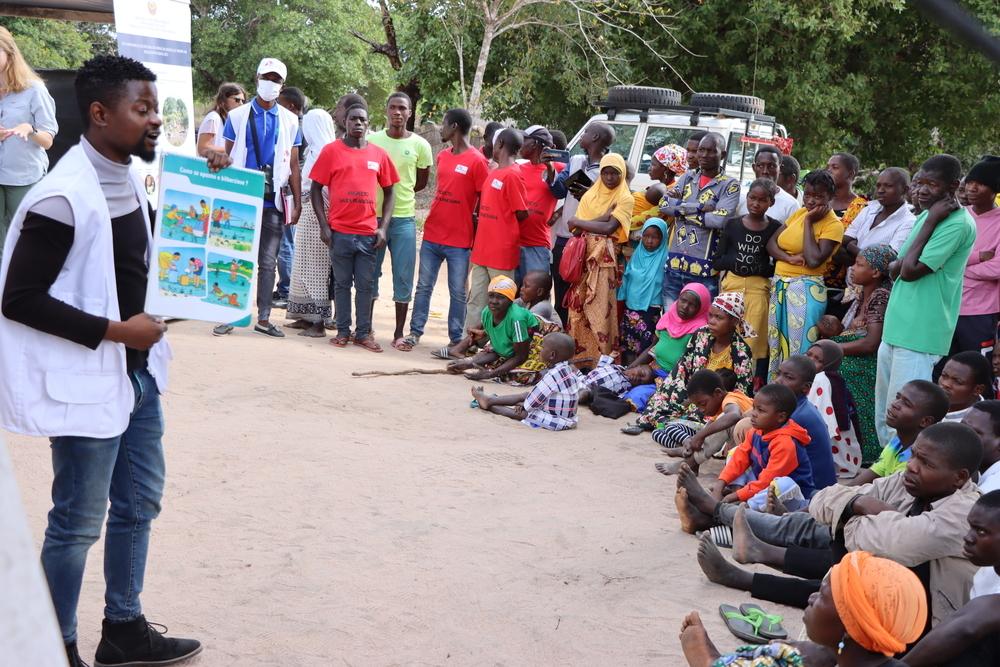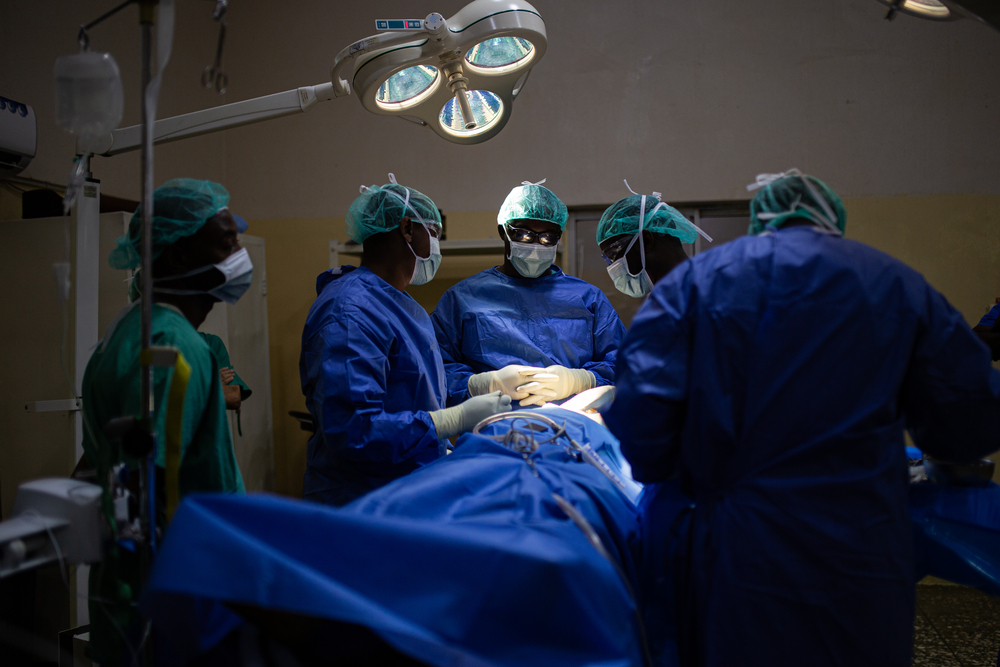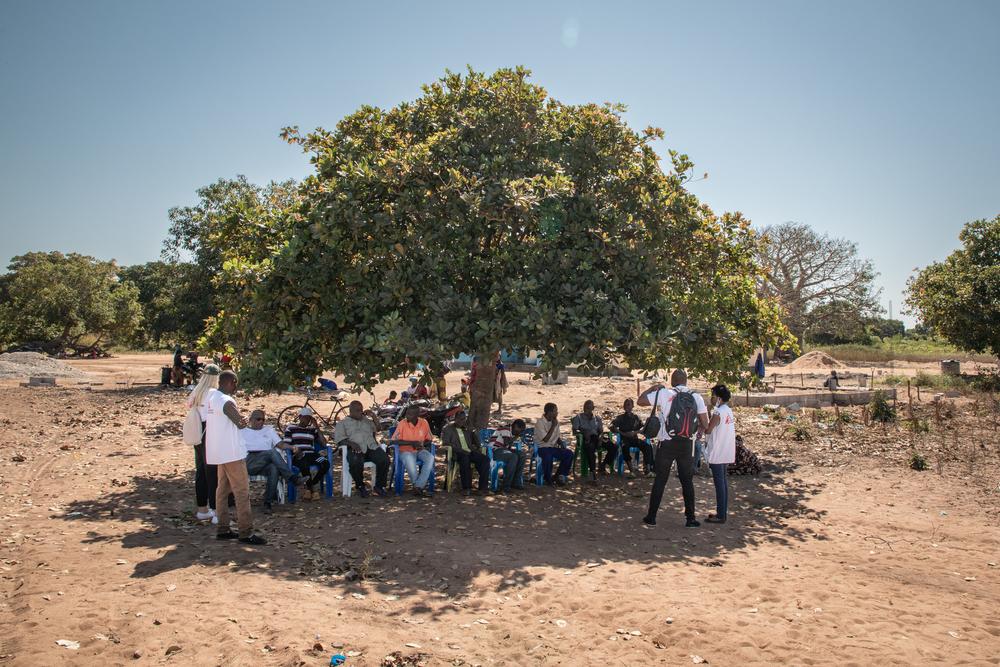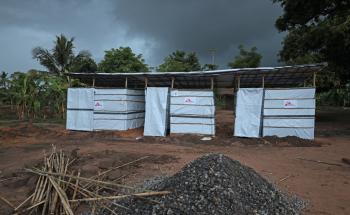In the rural district of Mogovolas, located in Nampula Province in northern Mozambique, people face a difficult combination of climate extremes, fragile health systems, and diseases the world often forgets. Here, rainy seasons flood fields and damage fragile infrastructure, creating conditions where illnesses like schistosomiasis and lymphatic filariasis can spread more easily - diseases that receive little investment in research, treatment, or global funding despite their significant impact. Between 2022 and mid-2025, Doctors Without Borders (MSF) carried out a set of health activities in response to these challenges, aiming to strengthen local capacity and improve access to care.
As we reach the planned conclusion of MSF’s work in this region of Mozambique, here are five key things to know — about the context, the work we did, and what’s still needed to ensure people continue to get the care they need.
1. A climate-conscious intervention
Climate extremes in Nampula Province do not only damage roads and crops — they foster the spread of waterborne and parasitic diseases like schistosomiasis, lymphatic filariasis, cholera and malaria. These diseases were already endemic in the region, but irregular rainfall patterns, prolonged droughts, and the depletion of groundwater—all worsened by climate change—have created even more favourable conditions for their spread and persistence in recent years. In this context, MSF’s approach was twofold: treat the disease and address the conditions that allow it to thrive.
Our teams rehabilitated water points, solar-powered health facilities, and improved drainage systems. These were not temporary fixes but long-term investments. These activities helped reduce exposure to contaminated water, lowered the risk of disease transmission, and, by providing solar-powered electricity, ensured more reliable and continued access to healthcare in remote areas.
“MSF teams supported rural health centers across eight locations to treat neglected diseases and worked closely with local communities to better understand and respond to climate-sensitive health needs,” explains, Nelson Nuvunga, an MSF nurse who worked in this project for three years.

2. Communities and patients at the centre of their health
Rather than simply delivering care, MSF sought to place communities and patients at the heart of healthcare. Volunteers and health promoters were trained to visit homes, teach self-care techniques, and detect illness early, turning prevention into a shared responsibility. This approach not only fostered trust but also led to earlier diagnosis, better adherence to treatment, and ultimately improved quality of patient care.
Ancha Faqui, a woman living with lymphedema, recalls: “When MSF first arrived in our community, I couldn’t walk uphill or carry a child. I also had trouble doing housework because of the pain. But now I’m much better, thanks to the exercises they taught us.”
Through community-based groups, patients learned to clean and massage affected limbs, perform therapeutic exercises, and support one another, restoring not just mobility, but dignity and agency.
Over time, many of the patients became fully capable of managing their conditions independently, recognising early symptoms, preventing complications, and even guiding others in their communities through self-care practices and timely referral for treatment.

3. Fighting neglected tropical diseases
Neglected tropical diseases (NTDs) often persist not because they’re untreatable, but because they’re ignored as they mostly affect the poorest and most remote communities, where limited political interest, scarce funding, and weak health systems mean these diseases receive little attention. MSF supported eight health centres with diagnosis and treatment for scabies, schistosomiasis, and lymphatic filariasis.
To support patients with severe malaria, our teams also established a local blood bank at Nametil health centre to reduce delays and ensure safe blood transfusions.
Between 2023 and 2024, MSF supported the Ministry of Health with hydrocele surgery for men affected by this isolating condition. While the campaign was originally planned to run for a longer period and with many more patients, various contextual challenges made the materialisation of the plan impossible. Still, 18 surgeries were carried out — a small but meaningful intervention that changed the lives of some and helped draw attention to the need for continued care in this area. As part of the campaign launch, MSF also constructed and equipped a fully functional operating theatre to carry out hydrocele surgeries. The facility can continue to be used in the long term for surgeries and other secondary healthcare needs of the community.

Alfredo Augusto, one of the patients who was treated by MSF, shared: “I found out about MSF during the health talks session they gave here. The community leader helped me register for surgery. Since then, everything has improved. I’m back to doing the work I couldn’t do before, and my family is happy too.”
In many communities, men with hydrocele are perceived as overly virile due to the visible swelling of the scrotum, a misconception that masks the suffering, isolation, social and physical limitations they endure. Addressing the condition not only restored physical health and mental health, but also dignity and a sense of normalcy for those affected.
- More than 1,800 blood transfusions were provided to patients in need, including severe malaria-related anaemia.
- Over 45,000 patient consultations were supported by MSF teams across supported health facilities.
- More than 102,000 people were reached through health promotion and community education activities.
- Nearly 19,700 cases of neglected tropical diseases were diagnosed and treated — including over 12,000 scabies cases, more than 6,300 genitourinary schistosomiasis cases, and 856 cases of lymphatic filariasis.
- 18 hydrocele surgeries were successfully performed in 2024, offering long-awaited relief to men who had lived for years with pain, swelling, and stigma.
4. Acting fast in times of crisis
When Cyclones Ana, Gombe, Freddy, Fillipo and Jude hit and cholera threatened to spread, MSF in certain context mobilised rapidly. Working with local authorities, we deployed mobile clinics, distributed emergency water treatment supplies, and set up cholera treatment centers capable of treating hundreds.
From preparedness trainings to emergency hygiene kits, MSF responded not just to the disaster, but to its long-term health implications.
5. A spirit of collaboration and continuity
Though MSF’s operational presence in Nampula is ending, the tools and knowledge remain. Self-care guides for lymphatic filariasis, steering community committees, and cholera training kits have been adopted by the Ministry of Health for scale-up.
Reflecting on the journey, Luis Neira, MSF’s Head of Mission in the country, shared a message: “This was more than a medical intervention - it was a shared effort to restore trust, dignity, and the belief that care can reach even the most remote places. Yet, we must acknowledge that many challenges remain, from persistent gaps in access to care, to the continuing threat of climate-related health emergencies. Moving forward, it will be essential for national health actors and partners to continue addressing these challenges through coordinated and sustained efforts.”
MSF continues to provide medical-humanitarian aid in Mozambique, with ongoing projects in Cabo Delgado province. MSF is also involved in epidemic preparedness and response, particularly for disease outbreaks and extreme weather emergencies. Far from leaving the country, MSF remains committed to adapting its support to Mozambique’s evolving health needs within its capacity and resources.



